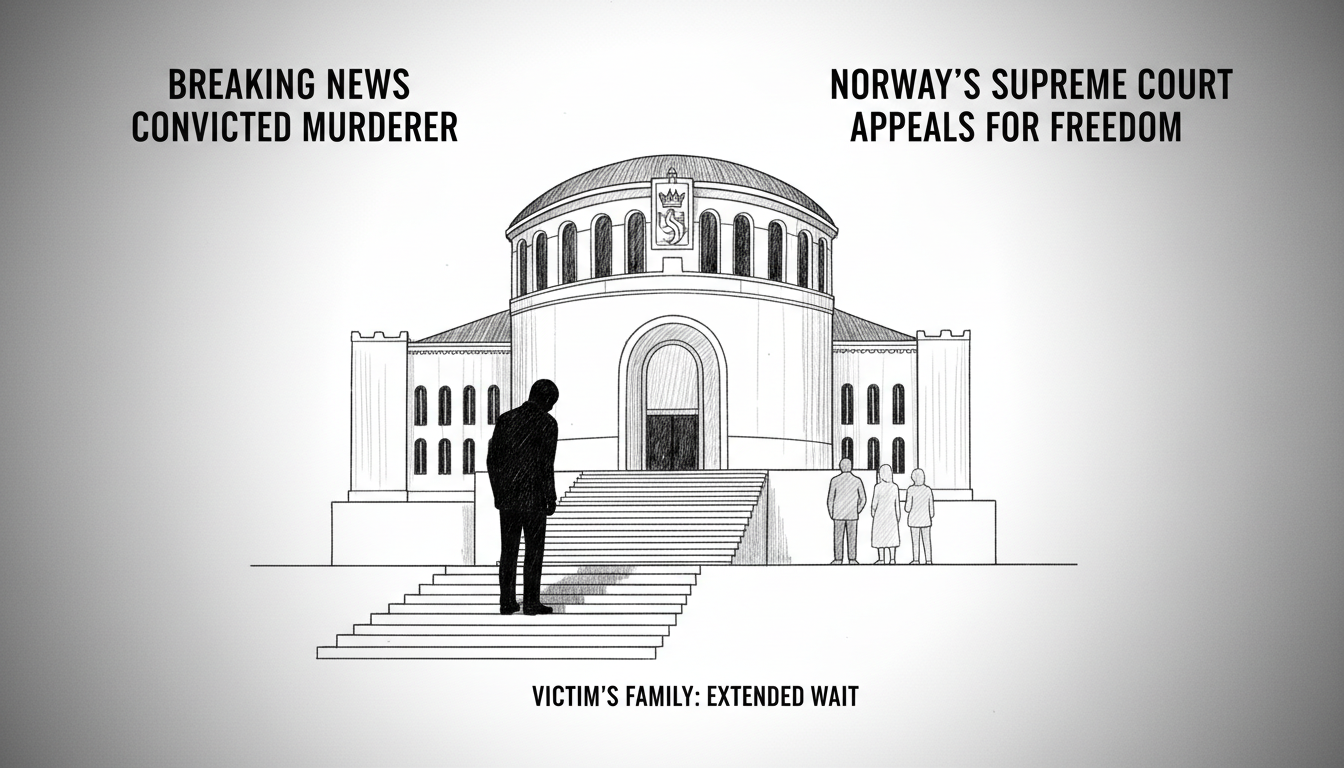A 64-year-old man convicted of murdering a 35-year-old woman in Arendal city center has appealed his case to Norway's Supreme Court. The man was found guilty of the killing that occurred in early April last year.
The defendant's lawyer confirmed the appeal but could not provide specific details about the grounds for challenging the conviction. The legal representative stated they are still preparing their formal arguments for the Supreme Court review.
The victim's family expressed deep frustration about the extended legal process. Their support attorney said the family finds the additional waiting period extremely difficult. They had hoped for closure after the initial verdict.
Norway's Court of Appeal had previously ruled the man was not criminally responsible due to mental illness. Instead of prison, the court ordered compulsory mental health care treatment. This type of sentence is common in Norwegian law when defendants are deemed mentally incompetent at the time of their crime.
The appeal will first undergo preliminary assessment by the Supreme Court's appeals committee. This panel determines whether cases meet the criteria for full Supreme Court review. Only matters involving significant legal principles or potential judicial errors typically proceed to full hearings.
Norway's Supreme Court accepts approximately 10-15% of the appeals it receives each year. The court focuses on cases that could establish important legal precedents or correct substantial procedural errors from lower courts.
The Norwegian legal system allows for multiple appeals in serious criminal cases. This process can extend proceedings for years, particularly in murder convictions. The system aims to balance defendants' rights with victims' needs for resolution.
Mental health verdicts often face particular scrutiny in appeals. Defense teams sometimes challenge both the mental health assessment and the compulsory care conditions. The Supreme Court must weigh medical expertise against legal standards.
Arendal residents continue to follow the case closely. The small coastal community was deeply affected by the violent crime in their city center. Many hope the Supreme Court will provide finality to the prolonged legal proceedings.
The case highlights Norway's approach to mentally ill offenders. The country emphasizes treatment over punishment when defendants lack criminal responsibility. This philosophy reflects broader Scandinavian values about rehabilitation and mental health care.
Legal experts note that Supreme Court appeals in murder cases typically take several months for initial review. If accepted, full hearings could extend into next year. The process demands careful examination of complex legal and medical evidence.

